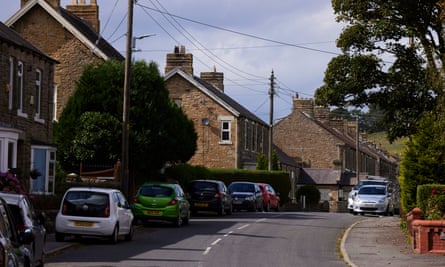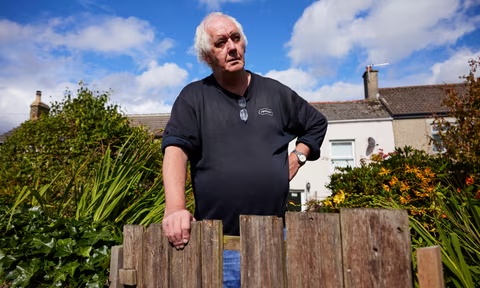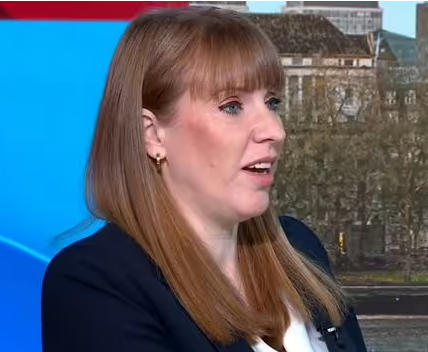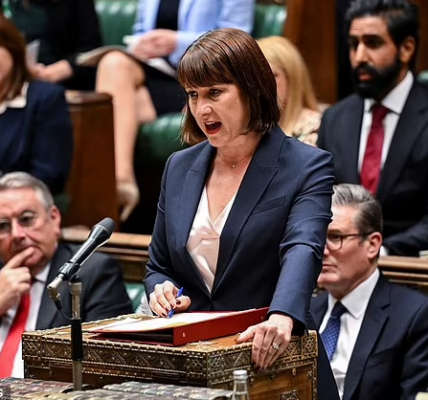‘Will we freeze to death?’: trepidation in England’s snowiest village over loss of winter fuel payment.H
Pensioners in Copley, which has 53 days of snow a year on average, say plan to limit help will be a ‘big loss’

Ray Watson smiles, but he’s only half joking in the answer he gives about what losing the winter fuel allowance potentially means for him.
“That’s right, we have a reputation as the snowiest village in England, so we will freeze to death?”
The former Black & Decker factory worker and his wife live in Copley, a tiny County Durham village on the edge of the North Pennines which has no shop or pub or, crucially, any gas supply.
Most of the houses, built for miners, are stone and difficult to heat. Plus Copley’s snowy reputation is in no small part due to its position in the Gaunless Valley, 253 metres above sea level.
According to the Met Office, Copley has an annual average of 52.7 days of snowfall, the highest in England. In the UK it issurpassed only by the Cairngorms, Shetland, Fair Isle and Orkney.
When it is cold in Copley, it is really cold. “It can be windy here when it’s not windy anywhere else,” said Wendy Schönau, a villager. “It can be horrendous, like a train coming down the road.”

The government wants to scrap the winter fuel payments of up to £300 for all pensioners in England and Wales except those on means-tested benefits. About 10 million people could lose the payment, which was introduced by the Labour government in 1997, in a move described by commentators as “mean”.
One of those losing out will be Watson. “I can see what the government is doing … but it’s scary. Losing it will be a big miss. I have a little pension from my work which means it will take me to where I get nothing … I get nothing.
“But the wife keeps saying: ‘There are loads of other people worse off than us,’ so it makes me feel a bit better. Until it starts snowing.”
Watson and most of his neighbours have oil boilers. “The price last winter was over £1,000 for 1,000 litres, it was unbelievable,” he said. “We pay much more than people living in towns on gas.”
When the local MP, Sam Rushworth, raised Copley in the Commons, the chancellor, Rachel Reeves, spoke of insulating 5m more homes over the next five years. Watson smiles at such a prospect.
“These stone houses don’t have any cavities so you can’t get any insulation in them,” he said. “They pester the life out of you coming round, saying: ‘We’ll do your loft’. I’ve got that much insulation [gesturing around a foot with his hands] in the loft and it is doing nothing.”
MPs will vote on the issue on Tueday. Watson said he and his wife, who has cancer, would have to find a way to afford it. “If we don’t get it, we don’t get it and we will be cold,” he said.
Over the road, enjoying the unexpected late summer sunshine and tending his garden is 70-year-old Raymond Dixon.
“I voted Labour but I didn’t vote for them taking away my winter fuel payment,” said the retired electrician . “They’re penny-pinching money off pensioners.”
Dixon said he could not claim benefits. “I’m being strung up because I’ve saved for my retirement. I’ve done all the right things.”
Copley was snowy but not every year, he said. “We didn’t get a lot of snow last year, to be honest, but it was a long winter last year. It was cold all of the time.”
Further down the main street, Schönau, a retired bookkeeper, said she and her husband would have had to “dig very, very deep” were it not for the winter fuel allowance they got last year.
The couple have just had a heat pump installed and are relatively cheery and optimistic. “It’s exciting … it’s all new.”
Other people spoke to the Guardian, preferring not to give their names, and conceded they would be able to afford it.
They included an elderly man out of his wheelchair cutting back the hedge of the house he shares with his daughter and her family.
“If it gets cold I can put on more clothes,” he said. “I sometimes walk round the house looking like an Eskimo.”
A government spokesperson said: “We are absolutely committed to supporting pensioners, over 12 million of whom could see their state pensions increase by almost £1,000 over the next five years.
“But given the dire state of the public finances we have inherited, it’s right that we target support to those who need it most. Over a million pensioners will continue to receive the winter fuel payment, many will benefit from the £150 warm home discount scheme, and we urge others to check their eligibility for pension credit.”
Ray Watson smiles, but he’s only half joking in the answer he gives about what losing the winter fuel allowance potentially means for him.
“That’s right, we have a reputation as the snowiest village in England, so we will freeze to death?”
The former Black & Decker factory worker and his wife live in Copley, a tiny County Durham village on the edge of the North Pennines which has no shop or pub or, crucially, any gas supply.
Most of the houses, built for miners, are stone and difficult to heat. Plus Copley’s snowy reputation is in no small part due to its position in the Gaunless Valley, 253 metres above sea level.
According to the Met Office, Copley has an annual average of 52.7 days of snowfall, the highest in England. In the UK it issurpassed only by the Cairngorms, Shetland, Fair Isle and Orkney.
When it is cold in Copley, it is really cold. “It can be windy here when it’s not windy anywhere else,” said Wendy Schönau, a villager. “It can be horrendous, like a train coming down the road.”

The government wants to scrap the winter fuel payments of up to £300 for all pensioners in England and Wales except those on means-tested benefits. About 10 million people could lose the payment, which was introduced by the Labour government in 1997, in a move described by commentators as “mean”.
One of those losing out will be Watson. “I can see what the government is doing … but it’s scary. Losing it will be a big miss. I have a little pension from my work which means it will take me to where I get nothing … I get nothing.
“But the wife keeps saying: ‘There are loads of other people worse off than us,’ so it makes me feel a bit better. Until it starts snowing.”
Watson and most of his neighbours have oil boilers. “The price last winter was over £1,000 for 1,000 litres, it was unbelievable,” he said. “We pay much more than people living in towns on gas.”
When the local MP, Sam Rushworth, raised Copley in the Commons, the chancellor, Rachel Reeves, spoke of insulating 5m more homes over the next five years. Watson smiles at such a prospect.
“These stone houses don’t have any cavities so you can’t get any insulation in them,” he said. “They pester the life out of you coming round, saying: ‘We’ll do your loft’. I’ve got that much insulation [gesturing around a foot with his hands] in the loft and it is doing nothing.”
MPs will vote on the issue on Tueday. Watson said he and his wife, who has cancer, would have to find a way to afford it. “If we don’t get it, we don’t get it and we will be cold,” he said.
Over the road, enjoying the unexpected late summer sunshine and tending his garden is 70-year-old Raymond Dixon.
“I voted Labour but I didn’t vote for them taking away my winter fuel payment,” said the retired electrician . “They’re penny-pinching money off pensioners.”
Dixon said he could not claim benefits. “I’m being strung up because I’ve saved for my retirement. I’ve done all the right things.”
Copley was snowy but not every year, he said. “We didn’t get a lot of snow last year, to be honest, but it was a long winter last year. It was cold all of the time.”
Further down the main street, Schönau, a retired bookkeeper, said she and her husband would have had to “dig very, very deep” were it not for the winter fuel allowance they got last year.
The couple have just had a heat pump installed and are relatively cheery and optimistic. “It’s exciting … it’s all new.”
Other people spoke to the Guardian, preferring not to give their names, and conceded they would be able to afford it.
They included an elderly man out of his wheelchair cutting back the hedge of the house he shares with his daughter and her family.
“If it gets cold I can put on more clothes,” he said. “I sometimes walk round the house looking like an Eskimo.”
A government spokesperson said: “We are absolutely committed to supporting pensioners, over 12 million of whom could see their state pensions increase by almost £1,000 over the next five years.
“But given the dire state of the public finances we have inherited, it’s right that we target support to those who need it most. Over a million pensioners will continue to receive the winter fuel payment, many will benefit from the £150 warm home discount scheme, and we urge others to check their eligibility for pension credit.”



